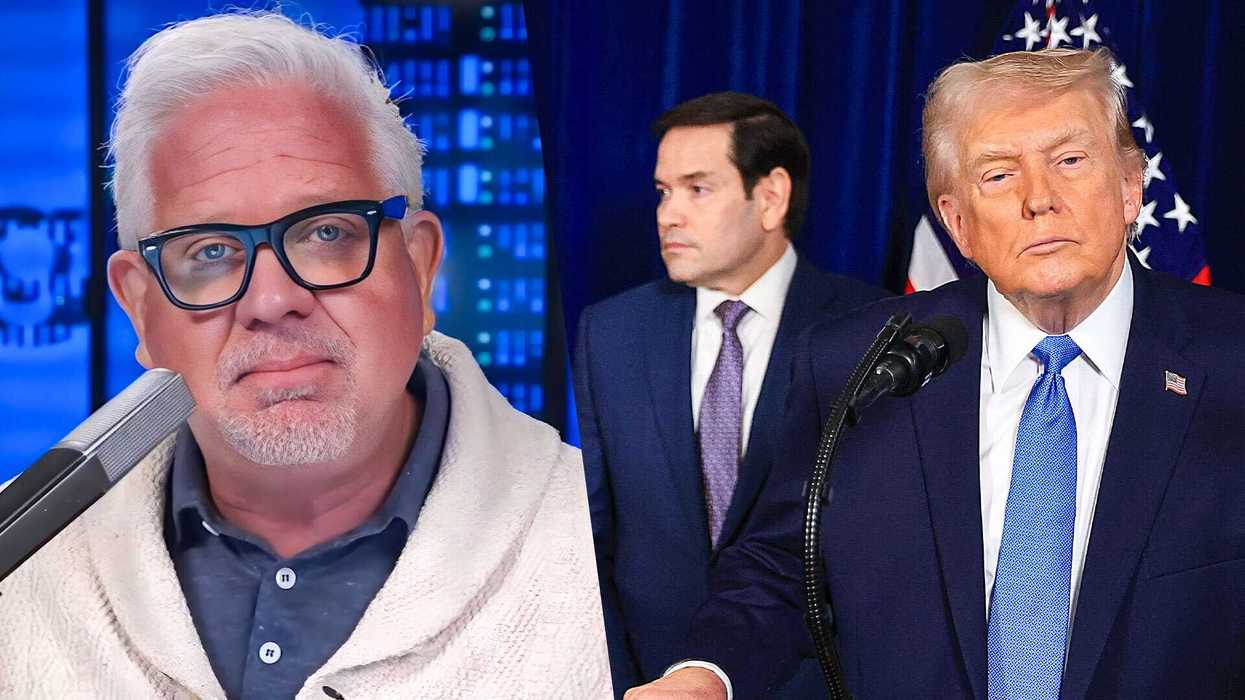The Department of Veterans Affairs is refusing to answer new questions about the possible death of tens of thousands of veterans who were awaiting access to the VA's health care service, and whether thousands of medical records were destroyed.
Instead, the VA took to criticizing press reports about its shoddy performance over the last 15 years.
 Secretary of Veterans Affairs Robert McDonald promised a more accountable VA, but so far the VA is dodging questions about how many veterans have died or been delayed access to health care. (AP Photo/David Becker)
Secretary of Veterans Affairs Robert McDonald promised a more accountable VA, but so far the VA is dodging questions about how many veterans have died or been delayed access to health care. (AP Photo/David Becker)
A report late last week from the Atlanta Journal-Constitution said up to 47,786 veterans have died since 1998 after waiting to be approved for the VA's health care system.
Internal VA documents reviewed by TheBlaze confirm those numbers. As of mid-2012, the VA's internal numbers indicated that it has a record of nearly 48,000 veterans who died with a status of "pending" in the VA's health system. It's not immediately clear how that number may have changed since 2012.
On Sunday, the VA responded with a blog post that says several facts have been omitted from recent press stories.
"It is important that we openly and willingly discuss our mistakes and how we intend to improve," wrote Stephanie Mardon, acting chief business officer for the Veterans Health Administration. "As we acknowledge areas where more work is needed, we also need to set the record straight when our work is unfairly mischaracterized."
But the blog post does little to answer the question of whether nearly 48,000 veterans have died while waiting for health care, and instead tries to argue that some of those veterans never formally tried to enroll.
Specifically, the VA said it was a mere "allegation" that 47,786 veterans with pending applications for health care died without getting that access.
It countered that allegation with a "VA fact," which is that an analysis of 1,843 pending records showed that about 75 percent of them never tried to apply for benefits. "We learned that the majority of records associated with deceased Veterans (75 percent) were for veterans who died who were not applying for health care benefits," the blog said.
But the blog post doesn't say why it only looked at 1,843 records, and provides no further details. A VA press secretary said she would try to get answers, but had none near the end of the day on Monday.
Internal VA records also indicate that close to 900,000 veterans are still in a "pending" status to receive VA care. But in its blog post Sunday, the VA tried to argue that most of those shouldn't count because only 216,736 of them have an application date, a sign that they are formal applicants.
Additionally, the VA shifted the blame to the veterans for why these applications cannot be completed. The VA said about half of them need more information proving the applicant is a veteran, and the other half need more financial information from the veteran.
But explanation goes against information that the House Veterans' Affairs Committee has received directly from the VA. Back in July, the VA told the committee that roughly 900,000 veterans are still in pending status.
And while the VA has said these delays are due to the lack of information being provided by veterans, others argue that the huge number shows that the VA's electronic application system is completely broken. For example, they say it clearly doesn't make it easy for veterans to submit information showing they are actual veterans, and does not seem to tie into any other government database that would have that information.
While the VA struggles to explain the possible death of nearly 48,000 veterans, it is also refusing so far to explain the possible destruction of thousands of veterans records.
At a July 8 hearing, VA whistleblower Scott Davis from the Health Eligibility Center in Atlanta said more than 10,000 veteran health records may have been deleted, and nearly 40,000 unprocessed applications were lost and then rediscovered.
House Veterans' Affairs Committee Chairman Jeff Miller (R-Fla.) followed that up by asking for information related to this charge from the VA by late July.
A few days after that deadline, Miller got a letter saying the documents could not be produced because of a separate, ongoing investigation by the VA's Office of Inspector General that Miller had requested.
"[T]he mere existence of a parallel OIG investigation emphatically is not a legitimate basis for VA unilaterally to decline a request for records for a committee oversight investigation," Miller wrote. "In fact, my staff has been in contact with the OIG, which indicated there was no issue with a parallel inquiry in this matter."
Miller then asked that this information be provided by August 15. When asked whether the committee received that information yet, three days past the deadline, a House aide replied, "no."

 Secretary of Veterans Affairs Robert McDonald promised a more accountable VA, but so far the VA is dodging questions about how many veterans have died or been delayed access to health care. (AP Photo/David Becker)
Secretary of Veterans Affairs Robert McDonald promised a more accountable VA, but so far the VA is dodging questions about how many veterans have died or been delayed access to health care. (AP Photo/David Becker)






